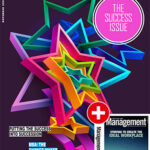The change maker
As the world emerges from its covid fog, the MBA remains a prized credential – standing out as a key enabler to an enriched world view and maximised personal potential. […]
As the world emerges from its covid fog, the MBA remains a prized credential – standing out as a key enabler to an enriched world view and maximised personal potential.
Transformational is the best word to sum up the MBA. The Master of Business Administration made its debut back in 1908, when it was first introduced by Harvard University in Boston, and it has been transforming lives and careers ever since.
Of course, today’s MBA shares little resemblance to the original, both in its delivery and content, but wherever it is delivered around the world it has become a life changer. It empowers individuals to build a platform for a richer, fuller life; to extract personal and professional achievement way beyond expectation.
In New Zealand, the MBA continues to impact on the lives and careers of Kiwis from all walks of life. Professor Brad Jackson, director of the Waikato MBA programme, has spent the past 25 years teaching on MBA programmes around the world. He told NZBusiness that he has “never been more convinced of the saliency and value of the MBA learning experience in a world where it’s vitally important to make your own sense of world events; enrich your worldview; forge your purpose and act on that in a responsible manner”.
“I believe that MBA programmes are a vital force in enabling business, iwi, public and community leaders to create positive and sustainable changes within their organisations and communities,” says Jackson. “This critical challenge is what has continually driven me and my colleagues at the Waikato Management School in our work.”
2022 is the 30th anniversary of the Waikato MBA, and the 50th anniversary of Te Raupapa Waikato Management School – ranked number one in New Zealand for Business and Economics in the global Times Higher Education Subject Rankings.
With overseas travel restrictions now lifted, Jackson is thrilled that for the first time in three years they’re taking the MBA Study Tour to Vietnam this November as part of the Global Business paper.
For 2023, the School is implementing a new strategy with a core purpose of ‘empowering people to grow thriving businesses, a thriving society, and a thriving world’.
The Waikato MBA will promote richer experiential learning opportunities and engage with a wider cadre of regional and global business leaders, explains Jackson. “We have always had a strong commitment to sustainability and I see this being ramped up significantly in our teaching as we strive to move to a Net Zero climate regime.
“We are also committed to promoting an ambicultural approach to our teaching based on a strong Te Ao Māori foundation. And we will continue to promote disruptive innovation and rapid digitalisation in business. Both will be modelled in our teaching.”
Meanwhile, in Auckland, the AUT MBA is also gearing up for a busy time. Ken Lee, AUT’s MBA director, reports their Term 4 intake is double the number of last year’s.
“2023 looks very buoyant and will remain positive, particularly as we see a revival of international enrolments.”
Student feedback indicates that the AUT MBA’s revised structure and curriculum this year have been very well received. Lee says the focus on the Applied Business Project, the capstone of the AUT MBA, is working exceptionally well. Students work as business consultants to produce outstanding projects for business, industry and community clients, leaving an immediate and lasting impression on those organisations. In this way, the Project also profoundly impacts students when they see their recommendations and strategies being implemented.
Increased term time and more eclectic-focused electives, which allow students to develop their specific areas of interest and discipline, have also been well received at the AUT.
Cohort calibre
The MBA attracts students of all ages, ethnicities and walks of life. Professor Brad Jackson says the Covid experience has highlighted the need to build capability in order to respond proactively to what’s needed.
“With our students there’s a hunger to broaden and deepen their knowledge to make sense of themselves, their environment and their purpose,” he says. “I have also noted their commitment to support each other to ensure that everyone works through and succeeds in their learning journey despite having to face more obstacles and distractions.”
Jackson says the School always ensures potential students are enrolling for the right reasons – most importantly impact, rather than status; and for the challenge, not for affirmation.
They must also understand what they need to put into the programme in terms of time and effort and be ready for the scale of transformation they will experience, he says.
“It’s vital they have strong support at home and in their workplace for their studies, and the changes in outlook and aspiration that will eventuate.”
Distinct differences
Every MBA has its clear and definite differences in content and delivery. The Waikato MBA has a strong, practical orientation in its DNA, says Jackson. “A focus on promoting impact, whether that is economic, social or environmental.”
He says they were a pioneer in the use of business case competitions within the curriculum.
“The High Impact Project enables students to engage in an investigative applied research project aimed at guiding positive change within the organisations, industries or communities in which they work.
“We provide highly personalised learning support geared to individual and organisational needs and creating enduring lifelong learning communities.”
At AUT, Ken Lee says the university regards the MBA as a student journey. The focus is on the Applied Business Project, and each course helps develop models and tools that apply to that Project. He says the students are supported to fine-tune and customise their learning journey so that they succeed in their studies, and yes, there are times when they will find themselves outside their comfort zone.
Invest in yourself
There is no better investment you can make than one that you make in yourself. That may be a cliché, but it’s one Ken Lee often uses at AUT MBA inductions. The MBA gives a good return on that investment, he says.
“There’s a lot to be said for being an intentional learner. It’s critical for one’s own personal and professional development, and for the development of your organisation.”
People investing in an MBA today can expect a strong customer-centric approach, where learning is customised and best suits your needs and development, explains Lee.
“Essentially, the MBA is about preparing you for the future. When you look at the economic reports published by The Economist or McKinsey, you realise that many jobs will change.
“The MBA will enable you to manage and influence that change and give you the tools to be an effective leader in the turbulent business world of tomorrow.”


